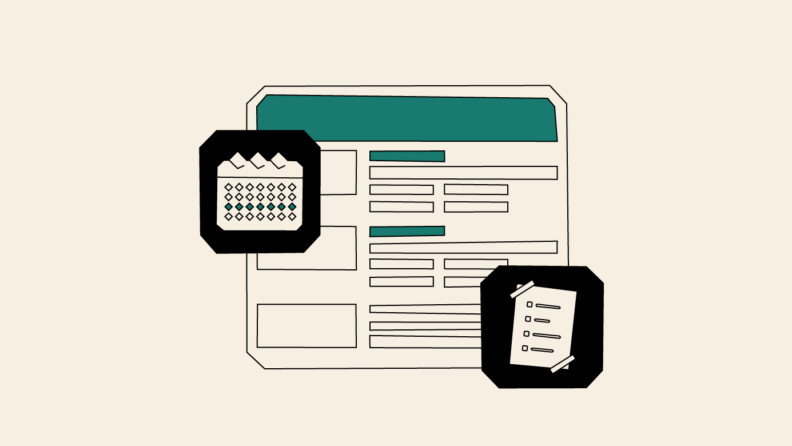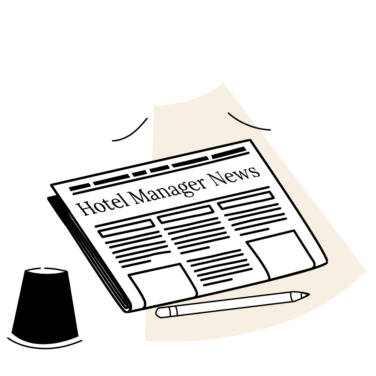Running a hotel without the right software is like trying to steer a ship without a compass—you’re bound to get lost. I’ve seen countless managers struggle with outdated systems, wasting time on tasks that should be automated.
I’ve been in this industry long enough to know what works and what doesn’t. You need hotel management software that streamlines operations, boosts efficiency, and keeps guests happy.
In this article, I’ll walk you through the key features you should look for to ensure your software does the heavy lifting, so you can focus on what really matters—your guests.
What Is Hotel Management Software?
Hotel management software is a digital tool that helps streamline and automate day-to-day operations in a hotel. It handles everything from booking reservations, managing guest check-ins and check-outs, tracking housekeeping, and processing payments, to even handling customer data and preferences.
I’ve seen firsthand how it simplifies complex tasks, allowing hotel managers and staff to focus more on delivering a great guest experience rather than getting bogged down in administrative work. The right type of hotel management software can be the backbone of a well-run hotel, making everything more efficient.
Who Uses Hotel Management Software?
Hotel management software is used by a wide range of staff within a hotel, from front desk agents and reservation teams to housekeeping, finance, and even upper hotel managers. I’ve worked with all levels of hotel operations, and I can tell you that this software is essential for anyone involved in the day-to-day running of the hotel.
Front desk staff use it to manage bookings and guest interactions, housekeeping relies on it for room status updates, and management uses it for reporting and decision-making. It's the glue that keeps every department connected and running smoothly.
How To Pick Hotel Management Software: Buyer’s Guide
Here are some general tips and guidelines to keep in mind when choosing hotel management tools:
- Identify Your Hotel’s Specific Needs
- What tasks need streamlining?
- What departments will use the software?
- Set a Budget
- Determine what you can realistically spend.
- Include potential costs for future upgrades.
- Test Software Demos
- Check for user-friendliness.
- Have staff from different departments test it.
- Evaluate Integration
- Does it integrate with your current systems (e.g., accounting, booking engines, POS)?
- Check for Scalability
- Can the software grow with your business?
- Will it handle larger guest volumes or added properties?
- Look Into Customer Support
- Is support available 24/7?
- What are the response times?
- Read Reviews and Get Recommendations
- Check industry forums or ask other hotel professionals.
- Read user reviews to understand potential challenges.
- Ask About Training and Onboarding
- Is staff training included?
- How long does it take to fully onboard?
- Confirm Data Security
- Does it comply with industry security standards?
- Is guest data protected?
- Negotiate Contracts and Terms
- Clarify any hidden fees or long-term commitments.
- Make sure you can scale or cancel without penalties.
Key Features Of Hotel Management Software
One of the things you’ll need to think about when buying a hotel management system is the key features you need, as well as the more advanced features that may be essential or nice-to-haves. From my experience with hotel management, here are the hotel management software features you need to be aware of:
1. Inventory Management (Room Inventory)
Inventory management ensures that your available rooms are always tracked and updated accurately. It prevents overbookings or unavailability due to poor tracking, solving a major operational headache that can result in lost revenue and guest dissatisfaction.
2. Multi-Property Management
For hotel chains or businesses with multiple locations, multi-property management allows centralized control over various sites from a single platform. It addresses the complexity of managing different properties, eliminating the need to switch between systems and ensuring consistency across all locations.
3. Guest Communication Tools
Automated guest communication tools streamline messaging for reservation confirmations, special offers, and post-stay surveys. This feature resolves the issue of manual follow-up and guest engagement, helping to boost guest satisfaction and retention without overwhelming your staff.
4. Channel Distribution (Channel Manager)
This feature manages room availability and pricing across multiple online travel agencies (OTAs) like Booking.com or Expedia. It eliminates the risk of double bookings and overbookings while ensuring maximum visibility across various booking platforms. The pain point solved here is manual updates on several sites.
5. Rate Management
Dynamic rate management tools automatically adjust room prices based on demand, seasonality, and competition. This solves the challenge of staying competitive without manually adjusting rates, ensuring you capture the highest revenue possible without missing market opportunities.
6. Property Management System (Hotel PMS)
A PMS is the backbone of any hotel, handling reservations, check-ins, and guest profiles. It simplifies complex hotel operations, eliminating the inefficiencies caused by outdated systems or manual booking processes. This feature ensures seamless operations across the board.
7. Revenue Management
Including ADR and Revenue Management Systems
Revenue management systems help hotels maximize profitability by tracking key metrics like average daily rate (ADR) and occupancy. This feature automates pricing decisions and ensures you are making data-driven choices to boost revenue while reducing the complexity of manual forecasting.
8. Booking Engine
Including Online and Direct Bookings
A booking engine allows guests to book directly through your website, cutting down on OTA commission fees. This feature solves the issue of relying too heavily on third-party sites for bookings and helps drive more direct traffic, increasing profitability and control over guest experience.
9. CRM for Guest Management
Including: Guest Profiles and Loyalty Programs
A CRM tracks guest information, preferences, and loyalty program participation. It helps hotels provide personalized service, solving the pain point of disconnected guest experiences and allowing you to build long-term relationships that drive repeat bookings and positive reviews.
10. Reservation Management
Including: Reservation System, Room Availability, and Room Status Updates
Reservation management tools ensure that online bookings, cancellations, and room statuses are updated in real-time. This feature resolves the issue of miscommunication between departments and minimizes errors like overbookings or missed cleaning schedules, keeping operations running smoothly.
11. Reporting and Analytics
Reporting and analytics tools provide real-time data on occupancy rates, revenue, and operational performance. This feature helps managers identify trends and make informed decisions. It solves the pain point of manual data tracking and analysis, ensuring you can optimize everything from pricing strategies to staff allocation without guesswork.
12. Mobile App for Hotel Operations
A mobile app allows hotel staff to manage tasks such as check-ins, housekeeping updates, and guest requests on the go. This feature addresses the need for flexibility and real-time updates, especially in fast-paced environments where immediate access to information is crucial.
13. Point of Sale (POS) for Hotel Services
Including: Integrated payment gateways.
POS systems in hotels handle payments for on-site services like restaurants, spa treatments, and other amenities. It streamlines the billing process and integrates directly with guest folios, eliminating the pain of tracking multiple transactions across different systems.
14. Front Desk Operations
This feature covers check-ins, check-outs, and guest requests, simplifying day-to-day interactions at the front desk. It ensures smooth operations and resolves the pain point of managing guest information manually, reducing wait times and errors.
15. Housekeeping Management
Housekeeping management tools track room cleaning schedules, staff assignments, and room status. This solves the issue of poor communication between front desk and housekeeping, ensuring rooms are ready for guests promptly without confusion or delays.
Remember: Familiarity with hotel management software features can help streamline operations and strengthen your hotel management skills.
Hotel Management Software: New Buyer's FAQ
If you’re new to hotel management software, it’s normal to have questions. Let’s tackle some common concerns and help you make an informed decision.
Why Should Hoteliers Invest in Cloud-Based Software?
A cloud-based solution offers flexibility and real-time access to your hotel’s operations from anywhere. Whether you manage a small hotel or a larger chain, a cloud-based system ensures your data is secure and accessible, improving efficiency and reducing the need for heavy hardware investments.
Can Hotel Management Software Handle Payment Processing?
Yes, most all-in-one hotel management systems come equipped with payment processing features. This makes it easier to handle transactions, from bookings to in-house purchases, and ensures seamless integration with back-office systems for financial tracking.
What Are the Benefits of Integrating with Distribution Channels?
Integrating your hotel’s system with distribution channels like online travel agencies (OTAs) ensures that your room rates and availability are always up to date across multiple platforms. This minimizes the risk of overbookings while maximizing your hotel’s exposure to potential guests.
Automated transaction matching
Many hotel management systems come with built-in tools to manage housekeeping staff and room assignments. These features ensure that rooms are cleaned and ready for check-ins, allowing for better communication between the front office and housekeeping teams.
Can Software Help Small Hotels?
Absolutely! Even small hotels can benefit from using hotel management software. It allows you to streamline operations, manage guest interactions, and monitor key performance indicators (KPIs), without the need for a large management team. Plus, user-friendly interfaces mean even smaller staff can get up to speed quickly.
How Do Smartphones Factor Into Hotel Operations?
Modern systems often include smartphone integration, allowing managers and staff to access the software on the go. Whether it’s updating room availability or checking guest preferences, smartphones enable real-time decisions, improving overall efficiency.
What’s the Role of KPIs in Hotel Software?
Tracking KPIs like occupancy rates, revenue per available room, and customer satisfaction is critical for optimizing hotel performance. The best hotel software includes robust analytics to help you make data-driven decisions that lead to long-term success.
Are Hotel Property Management Systems Intuitive to Use?
Most systems are designed to be intuitive, ensuring that your staff can learn quickly without lengthy training. User-friendly dashboards and workflows help streamline tasks, reducing errors and improving the overall efficiency of your hotel’s operations.
Can I Outsource My Hotel Management?
Yes, companies exist to manage hotels on your behalf. These services are designed to take care of the hard work, so whether you own a small boutique hotel or a large property, they’ll make sure your business is handled professionally.
What Next?
Don't forget to browse around the site for more great hospitality industry and hotel management tips, templates, and tools. Plus, join The Hotel GM newsletter for expert tidbits sent right to your inbox!



